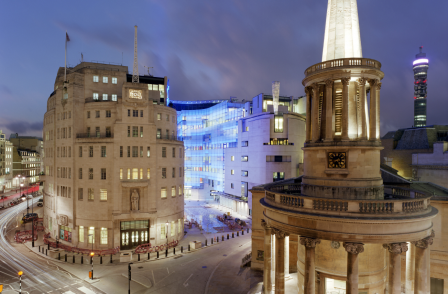
The BBC could face a mass walk-out later this summer after the National Union of Journalists called on its members to strike over an ‘insulting’ pay deal.
The NUJ and other unions are urging a yes vote when a strike ballot opens on 14 June after BBC management offered staff below inflation pay rises.
Last month, the corporation increased its offer of a flat-rate pay rise for staff earning less than £60,000 from £600 to £650 following talks with the unions but the new offer has been met with disdain. The unions had demanded an increase of RPI plus 3 per cent.
NUJ general secretary Michelle Stanistreet said: “It is quite frankly insulting that members are being offered such a paltry sum when the BBC always seems to be able to find cash for executive pay and can write off almost £100 million from its disastrous Digital Media Initiative.”
The NUJ is also up in arms over the BBC’s plans to cut its unpredictability working allowance (UPA) and to cap redundancy payouts for staff who joined after the start of 2013, which it says will create a two-tier workforce.
Stanistreet added: "Our members care about quality journalism and quality programming and this cannot be done on the cheap if the BBC wants to keep and attract talent. The changes to UPA allowances will create a situation where staff working the same shifts will find themselves being paid different rates.
“It is clear that the BBC want to introduce a two tier workforce and we know that it will be long servicing staff on better terms and conditions that will be first to be picked off in future waves of cuts. The NUJ is not prepared to sit back and let that happen.”
Sue Harris, broadcasting national organiser at the NUJ, said: “At a time when the BBC is intent on making 2,000 job losses as part of it cuts-programme Delivering Quality First, it is also trying to cut redundancy terms and consultation time. If the BBC is genuinely committed to redeployment it should withdraw these proposals.”
A BBC spokesperson said: “It is disappointing that the unions are considering strike action over pay when we have made an offer to staff which means that the majority of those eligible will receive an increase of 2 per cent or more. We understand that the economic climate is tough for staff but this is what we can afford given the savings we must make.”
Last week, the corporation settled a dispute with the union over a range of issues – including bullying and harassment – which had led to the last staff walk-out in March.
Stanistreet said the NUJ had held “some constructive talk” with director general Tony Hall that had resulted in the setting up of joint reviews to tackle some of the problems.
Email pged@pressgazette.co.uk to point out mistakes, provide story tips or send in a letter for publication on our "Letters Page" blog

